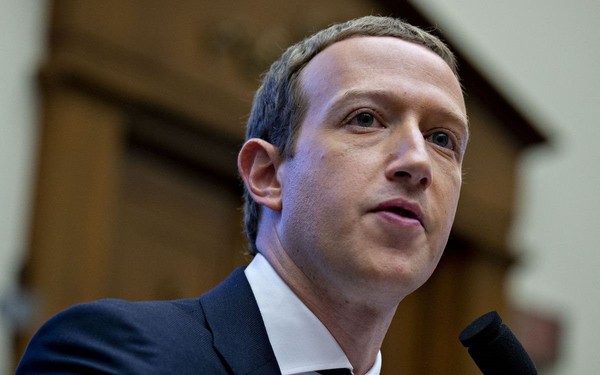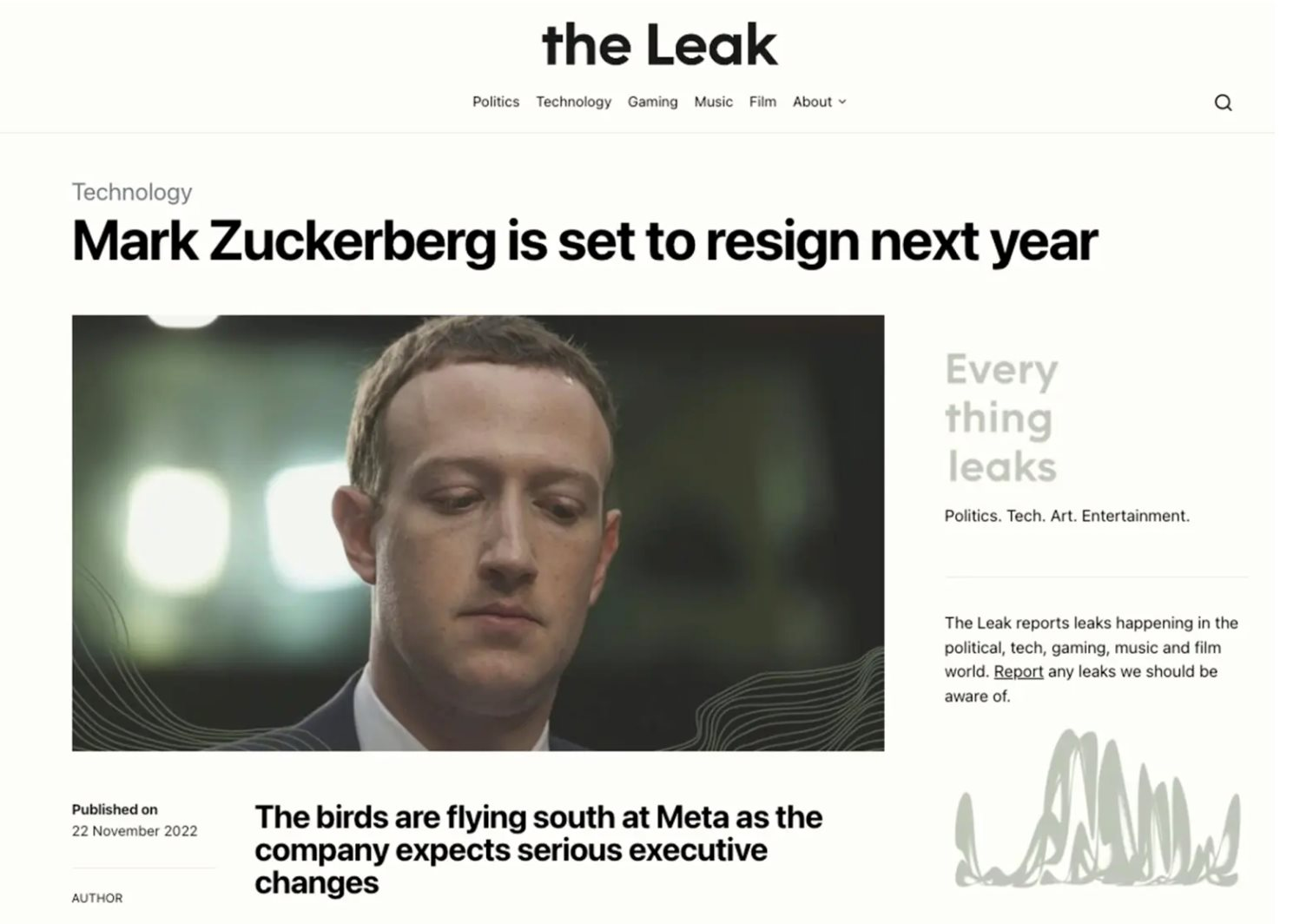Rumor has it that Mark Zuckerberg will resign next year
- Tram Ho
According to The New York Post, the social network has recently been rumored that CEO Mark Zuckerberg is planning to step down in 2023. The information was released by The Leak, in the context that Meta is facing a significant decline. talk about profits.
Meta representatives immediately denied the rumors, but still could not stop all speculation about the possibility that Zuckerberg could leave. This rumor helped Meta’s shares rise slightly in early trading.

“This is untrue,” a representative for Meta posted on Twitter.
Previously, Linette Lopez, a writer for Business Insider, also shared her views on Mark Zuckerberg’s resignation. He thinks this CEO should resign, let someone else manage Facebook, WhatsApp, Instagram, then use his huge fortune and connections in the venture capital circle to build a startup about the metaverse.
“This is the only way Zuckerberg can save his empire from… himself. Not to mention, it will also be in the best interest of society,” said Linette Lopez.
Not long ago, Meta released disappointing third-quarter financial results for the third quarter of 2022 after recording a decline in revenue, and warned that it was making “significant changes” to cut costs. reduce spending before 2023. In the period from July to September, the group only achieved revenue of 27.7 billion USD, down 4% compared to the same period last year. Parent company Facebook previously reported its first-ever revenue decline in the second quarter.

Rumors published by The Leak
Meanwhile, Meta’s net profit was also not very positive at only $ 4.4 billion, down more than half compared to last year. However, Facebook representatives are still optimistic that the profit in the last quarter of 2022 will be explosive, reaching 30-32.5 billion USD.
“We are moving into 2023 with a focus on prioritizing efficiency. It will help us adjust to the current direction and build a stronger company,” said Mark Zuckerberg, Meta CEO. “While we face short-term revenue challenges, fundamentals can still significantly improve revenue growth.”
However, before what Meta is facing, it is difficult for any investor to rest assured.
“Facebook has proven itself to be capable of going from nothing to being in a position to get everything it wants. The question is, can Facebook do this again? There’s a lot of skepticism out there,” said Marshall Front, chief investment officer of Front Barnett Associates.
This skepticism stems from Meta pouring money into the metaverse, while its core business is slowing down. From 2013 to 2021, Meta achieved an average annual revenue growth of about 42%. This year, the group’s sales are expected to drop 1%, according to the average estimate of analysts. The reason comes from the fierce competition of TikTok and the fear of stronger spending cuts by advertisers in the context of a recession. This also weighs on other social media companies, such as Snap.
“Investors are having a crisis of growth confidence. Those who have poured money into Big Tech say the decline “could last for years,” said Gene Munster, co-founder of Loup Ventures, a technology investment firm.

Meta has released disappointing third-quarter financial results for 2022 after recording a decline in revenue.
The message from investors so far is clear. They don’t want to take the risk of betting on something that can be paid back years later. These investors themselves just want to pour capital into companies with better profitability.
It’s been almost a year since the last sell-off. There is little signal that this decline will end in the near future. Inflation remains on the rise and Fed officials warn they won’t abandon old policy until prices cool.
“Investors have questioned whether investing in the metaverse is distracting Meta and neglecting other growth goals. They were too hasty to commit,” Scott Kessler, global head of technology at investment researcher Third Bridge, said of Meta.
The question remains open to this day, but what Zuckerberg does has shown more or less a distraction in Facebook’s growth goals. Specifically, on November 15, Meta revealed a new language processing computer model called Galactica, created to support searching and processing scientific documents, according to MIT Technology Review. Instead of creating a big push as Meta expected, Galactica suddenly “died prematurely” after only 3 days of receiving intense criticism. Yesterday, the public demo of this model was officially removed.
“The big tech companies keep doing this, and keep my word, they won’t stop because they think they can. They think this is going to be the future of the world of accessing information, even if no one asks for it,” said Chirag Shah at the University of Washington, who studies search technology.
Meta’s fallacy, and its hubris, once again show Big Tech’s blind spot in the field of big language modeling. Many studies have shown the flaws of this technology, including the tendency to reproduce stereotypes, “saying no is true”. Meta and many other companies that approach the big language model, including Google, have not taken this issue seriously.
“During the demo, they looked amazing, magical and smart. However, people don’t seem to have a clear understanding of the principle, that such things can’t work in the way that we exaggerate,” said Chirag Shah.
By: The New York Post, MIT Technology Review
Source : Genk
